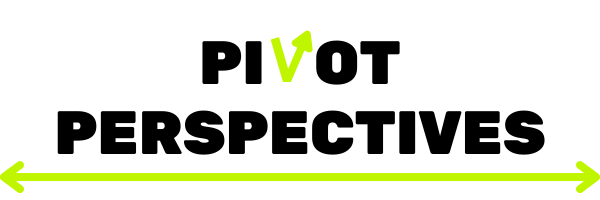- The Corporate Pivot
- Posts
- 🏗️ Seal the Deal: Insulation Co. for Sale!
🏗️ Seal the Deal: Insulation Co. for Sale!

Welcome Back to The Corporate Pivot!
Tired of answering 'What do you do for a living?' with a made-up sounding title like 'Senior Synergy Optimization Specialist'? The Corporate Pivot is your chance to swap the jargon for a business that actually makes sense. Read below to get advice from people going through it and see example businesses to buy!
Confusing Corporate Saying of the Day:
“This is Michelle from HR and she’s gonna talk about a Performance Improvement Plan (PIP)”
Professional Translation: “A chance to improve and show your boss the meaningful work you do.”
Corporate Pivot Translation: “I think we all know this means a promotion is coming…right? RIGHT?”

Here’s what we have for you today:
Pivot Perspectives: Sam meets a broker who goes above and beyond (who knew that was a thing?) and dives into the business of cleaning up ponds for profit. Tyler dives into using new market analysis tools, navigating broker challenges, and the ongoing search for the perfect business opportunity. | Acquisition Alerts: 💰 Specialty Fence Builder making $266k
| Mindset Matters: |

Sam’s Perspective (1st Time Buyer)
🆕 Status Update: We are considering purchasing a construction service business that meets all our criteria and has excellent financing options. I've signed the NDA, and we're waiting for the broker to send it over to Tyler. To our surprise, the broker we're working with has been fantastic—he's not only been responsive but also provided a list of pre-filled questions that the seller has already answered. This gave us valuable insights into the competition, growth potential, and operations, saving us a lot of time and demonstrating the broker's professionalism. We’re setting up a call soon, and I'll update you all on what’s discussed.
📚 Cool Business Idea: Pond Cleanup
This business focuses on restoring neglected ponds and small lakes, transforming them from muddy eyesores into valuable, clean water features. Services include dredging to remove sediment, water quality treatment, aquatic weed control, adding decorative features like fountains, and habitat restoration with native plants and fish.
Profitable Example
An established company can generate significant revenue by offering a mix of project sizes and regular maintenance:
Revenue Breakdown:
5 small projects/month (1/2 acre) at $3,000 = $15,000
2 medium projects/month (1-3 acres) at $20,000 = $40,000
Annual Revenue: $660,000
Operating Costs: $265,000
Net Profit: $395,000
This model relies on a blend of one-time cleanups and ongoing maintenance contracts for steady income.
Starting Out
To launch, you'll need roughly $185,000 for equipment, marketing, permits, and working capital. Start small with local projects, and focus on building a client base by offering reliable service and securing maintenance contracts.
Growth Opportunities
Expand Services: Add erosion control or larger lake restoration.
Secure Government Projects: Target parks and public water bodies.
Year-Round Packages: Offer seasonal maintenance plans.
Regional Expansion: Start local and gradually cover wider areas.
Partner for Referrals: Work with landscapers, HOAs, and real estate developers.
Pond cleanup is a rewarding and lucrative business that solves real problems while unlocking hidden value in properties.
Tyler’s Perspective (Multiple Businesses Owned)
🚨 Tip of the Week: Well, it’s been a mixed bag lately, but we’re making progress. The broker I mentioned last time is still MIA, but we're not letting that slow us down. We’ve started using some new market analysis tools, like BizBuySell Edge, to get better insights into business valuations. When you’re looking beyond the basic 2x or 3x profit multiples, having access to detailed market metrics, competitive landscapes, and local trends becomes crucial. The more data we can get, the sharper our decision-making. The search for the right opportunity can be slow, but with better market analysis tools and a few good brokers, we’re staying on course. It only takes one good deal to get the momentum going, and we’re ready for it.

💰 Deals < $500k
Business Name: Specialty Fence Builder
Revenue: $907,476
Asking Price: $458,000
Profit: $266,376 (Profit Multiple = 1.72x)
Location: Colorado (Relocatable)
Established: 2003
✅ Pros:
Established Client Base: The business has long-standing Master Service Contracts with key clients.
Stellar Safety Record: Maintained a solid safety track record with regular updates and adherence to safety protocols.
⚠️ Cons:
Physical Demands: The fence-building trade involves hard physical labor, which may limit the pool of potential buyers.
📈 Growth Opportunities:
Expand Advertising Efforts: Increase brand visibility and attract more clients by investing in marketing strategies.
Crew Development: Grow the workforce to take on more projects and expand into new commercial and industrial sectors.
💰💰 Deals $500k - $2m
Business Name: FAA-Approved Aircraft Maintenance Business
Revenue: $1,000,000
Asking Price: $1,250,000
Profit: $1,000,000 (Profit Multiple = 1.25x)
Location: Multiple Locations (Westfield, MA, Sarasota, FL)
Established: N/A
✅ Pros:
FAA Part 145 Certification: The business has multiple Part 145 certificates, expanding maintenance capabilities across various aircraft.
Experienced Team: The business includes a skilled team of IAs and A&Ps, ensuring continuity of operations.
⚠️ Cons:
Location Dependency: The need for specific leased hangar space may limit flexibility.
📈 Growth Opportunities:
Expand Service Offering: Include additional aircraft models and services like major repairs or avionics installations.
Target Commercial Airliners: Leverage existing certifications to increase work with larger airlines.
💰💰💰Deals $2m-$10m
Business Name: Commercial Insulation Sub-Contractor
Revenue: $5,000,000
Asking Price: $4,300,000
Profit: $1,685,000 (Profit Multiple = 2.55x)
Location: Colorado
Established: 2005
✅ Pros:
Government Contracts: Secures consistent work funded by the defense budget, providing stability.
Reputable Team: The company has a skilled and stable workforce with expertise in large-scale projects.
⚠️ Cons:
High Competition: There are numerous competitors, although the company has built a strong reputation.
📈 Growth Opportunities:
Expand into Private Sectors: Pursue additional contracts in schools, hospitals, and other commercial projects.
Leverage Military Growth: Take advantage of the expanding military infrastructure in Colorado to secure more contracts.

**If today is your first day reading, go to Chapter Recaps to get up to speed!
The Lean Startup: Ch. 8 Part 2
Today we are going to talk about how Pivots require courage & how you can implement a pivot or persevere meeting to ensure that you are hitting your goals! Ask any entrepreneur who has decided to pivot, and they will tell you that they wish they had made the decision sooner.

Eric believes 3 reasons why entrepreneurs wished they pivoted sooner:
Vanity metrics can allow entrepreneurs to form false conclusions and live in their own private reality.
When an entrepreneur has an unclear hypothesis, it’s almost impossible to experience complete failure.
Many entrepreneurs are afraid.
Eric brings up the startup Path, who was started by some super experienced entrepreneurs! (I’d say the names but Sam put me on a character limit, so you’ll have to find them yourself). Their product was not targeted at early adopters and as a result the early blogger reaction was negative. Many entrepreneurs fail to launch because they are afraid of this kind of reaction. Path was courageous enough to ignore this fear and press on, their goal was to create a more personal social network that maintains its quality over time. What makes them different you ask? They limited the number of connections to 50. This number was based on brain research suggesting that 50 is roughly the number of personal relationships in any person’s life at any given time. Many in the media felt that 50 was way too small, but their customer base enjoyed the intimacy that Path provided. An excerpt from David Morin, one of Path’s founders:
“We humbly test our theories and our approach to see what the market thinks. Listen to feedback honestly. And continue to innovate in the directions we think will create meaning in the world.”
The decision to pivot requires a clear-eyed and objective mind-set. One way to mitigate an emotionally charged decision is to have regular “pivot or persevere” meetings. Each meeting requires the participation of both the product development and business leadership teams.

Eric brings in the example of Wealthfront, their mission is to disrupt the mutual fund industry by bringing greater transparency, access, and value to retail investors. What makes them so unusual is that they started as a game. Their game, kaChing, conceived as a fantasy league for amateur investors. These investors would be able to create their own portfolios, without any initial investments, and would be graded based on their portfolio performance and risk tolerance. If they took extraordinary risks and got lucky, they would score lower. They hoped to test two ideas:
A significant percentage of the game players would demonstrate enough talent as virtual fund managers to prove themselves suitable to become managers of real assets (value hypothesis).
The game would grow using the viral engine of growth and generate value using a freemium business model (the growth hypothesis).
But, by the time Wealthfront was ready to launch its paid financial product, only 7 amateur managers had qualified as worthy of managing other people’s money, far less than the model had anticipated. After the paid product was launched, their conversion rate of gamers into paying customers was close to zero… It was time for a pivot. It turned out that the customers found the blending of virtual and real portfolio management on the kaChing website confusing. That’s why Wealthfront decided to pivot. They abandoned the game customer altogether and focused solely on providing a service that allowed customers to invest with professional managers. This is also common with pivots; it’s not necessary to throw out everything that came before and start over. Instead, it’s about repurposing what has been built and what has been learned to find a more positive direction. Is it time that you had your “pivot or persevere” meeting?
As always, if you want to discuss topics of this chapter (or any previous or future chapters) join our Discord channel.
Read more at corppivot.com!
Hope you enjoy this week's insights and happy deal hunting! Remember, if you find these updates helpful, share this newsletter with a friend!
